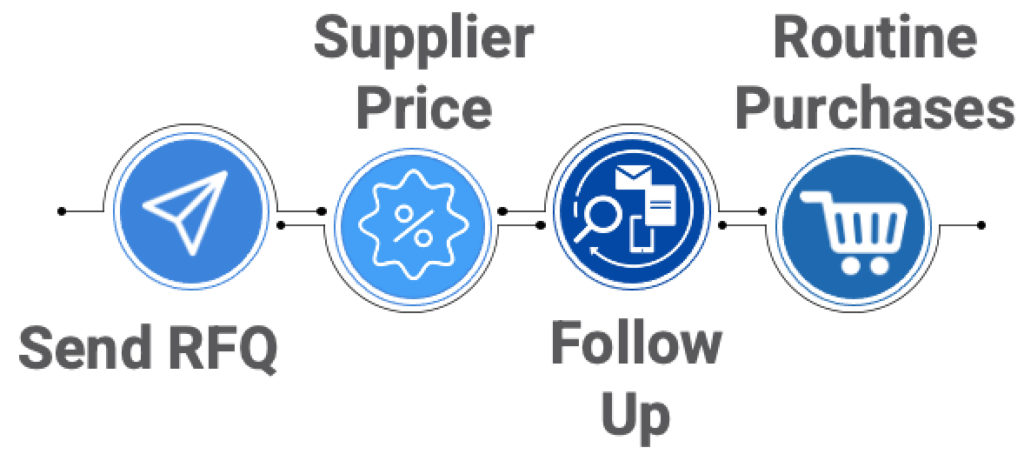In the traditional purchasing process, buyers typically send a request for quote (RFQ) to multiple suppliers and choose the one with the lowest price. They assume that the supplier will meet the required specifications, quality, and delivery availability. Once the order is placed, the buyer may need to follow up or expedite the order. This method works well for routine purchases with minimal variation.
 Buyer – An individual whose functions might include supplier selection, negotiation, order replacement, supplier follow-up, measurement and control of supplier performance, value analysis, and evaluation of new materials and processes. In some companies, the functions of order placement and supplier follow-up are handled by the supplier scheduler.
Buyer – An individual whose functions might include supplier selection, negotiation, order replacement, supplier follow-up, measurement and control of supplier performance, value analysis, and evaluation of new materials and processes. In some companies, the functions of order placement and supplier follow-up are handled by the supplier scheduler.
When acquiring common materials or services, Procurement may utilize additional features such as total cost analysis or value analysis. They may also use RFQs to seek out the best price and follow up as needed. To simplify the process, an ERP system can be used to automate the order placement with the supplier. It is recommended to automate transactions whenever feasible.

Total Cost Analysis – A process by which a firm seeks to identify and quantify all of the major costs associated with various sourcing options.
 Enterprise Resources Planning – Framework for organizing, defining, and standardizing the business processes necessary to effectively plan and control an organization so the organization can use its internal knowledge to seek external advantage. An ERP system provides extensive databanks of information including master file records, repositories of cost and sales, financial detail, analysis of product and customer hierarchies, and historic and current transactional data.
Enterprise Resources Planning – Framework for organizing, defining, and standardizing the business processes necessary to effectively plan and control an organization so the organization can use its internal knowledge to seek external advantage. An ERP system provides extensive databanks of information including master file records, repositories of cost and sales, financial detail, analysis of product and customer hierarchies, and historic and current transactional data.

